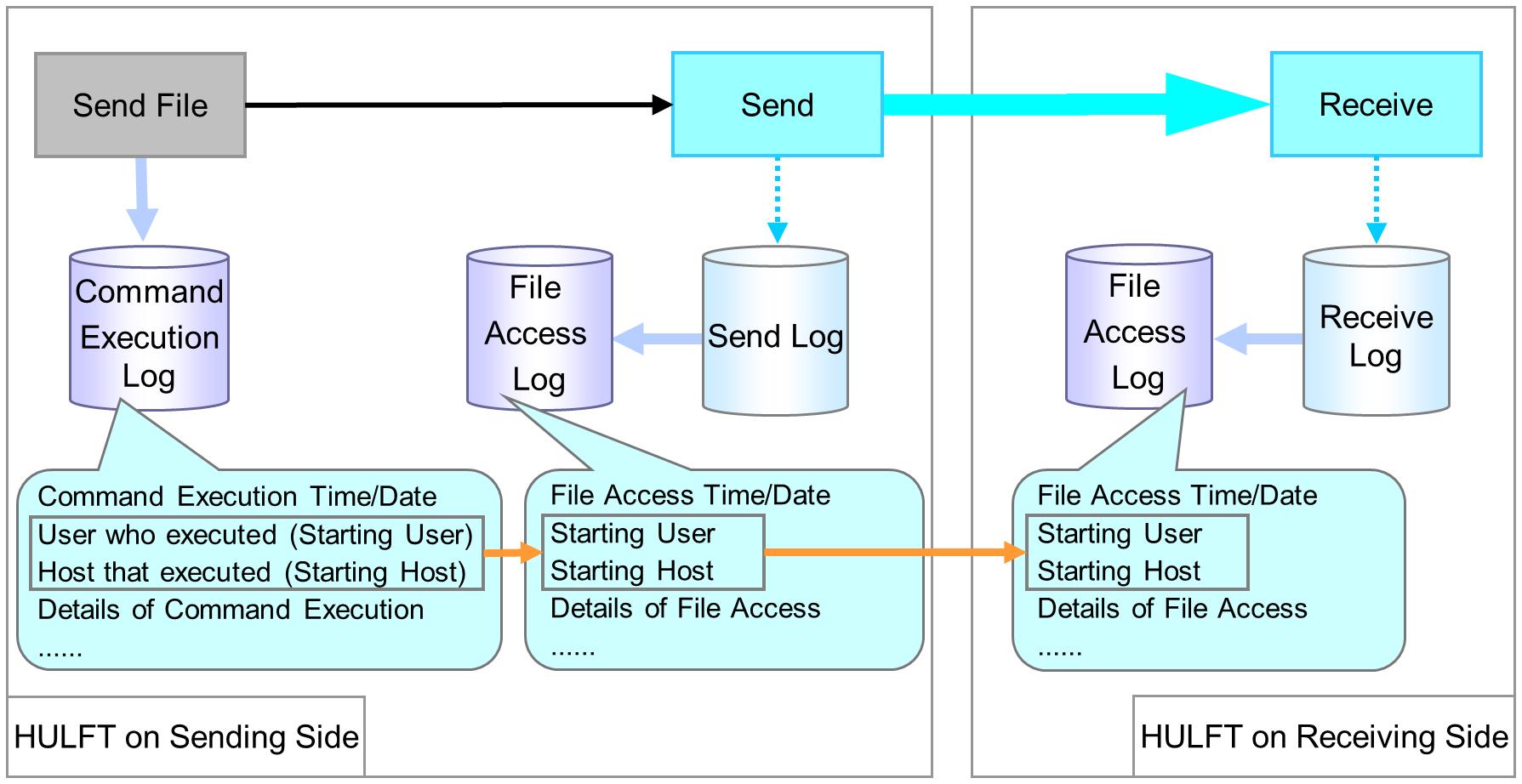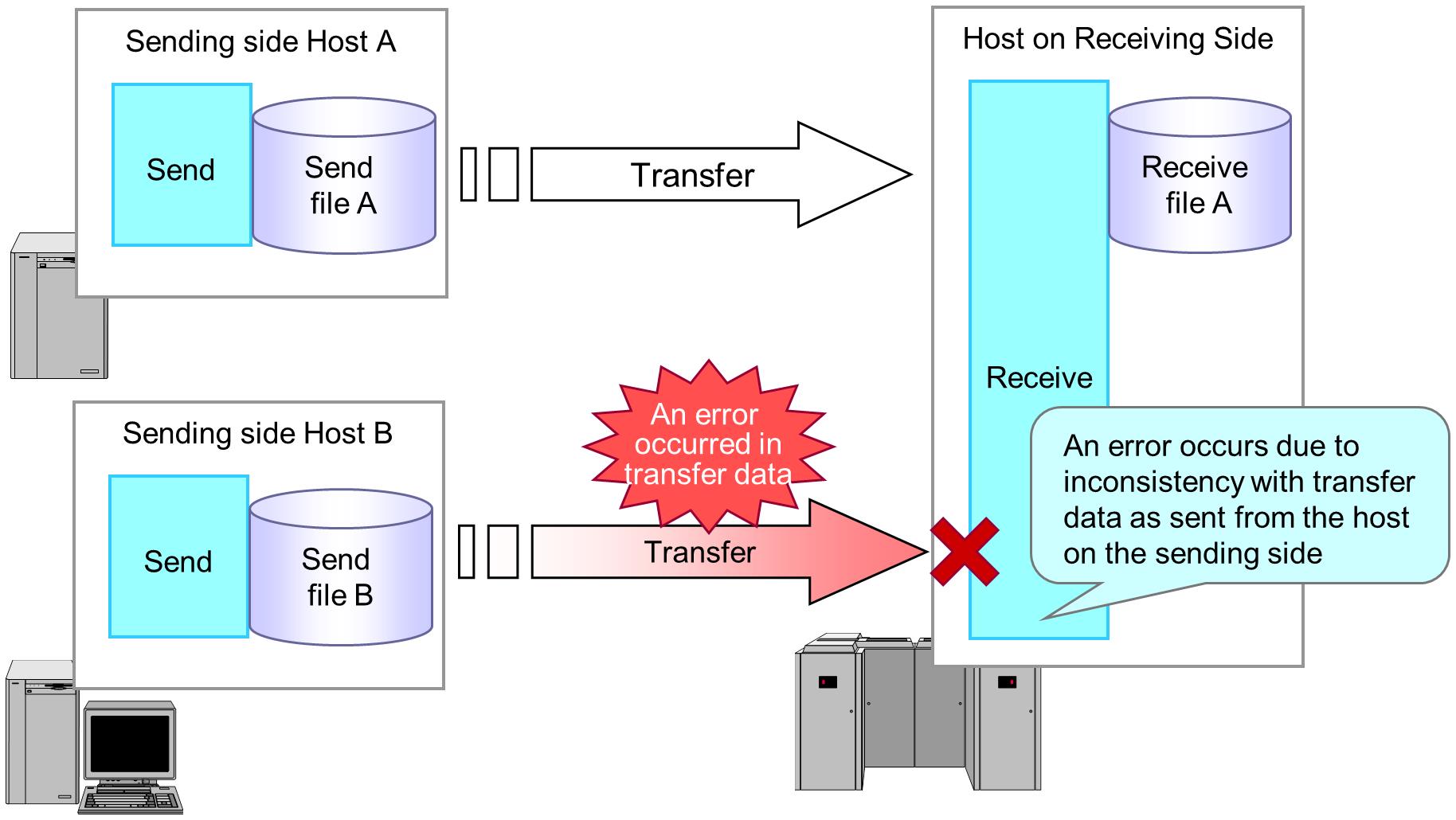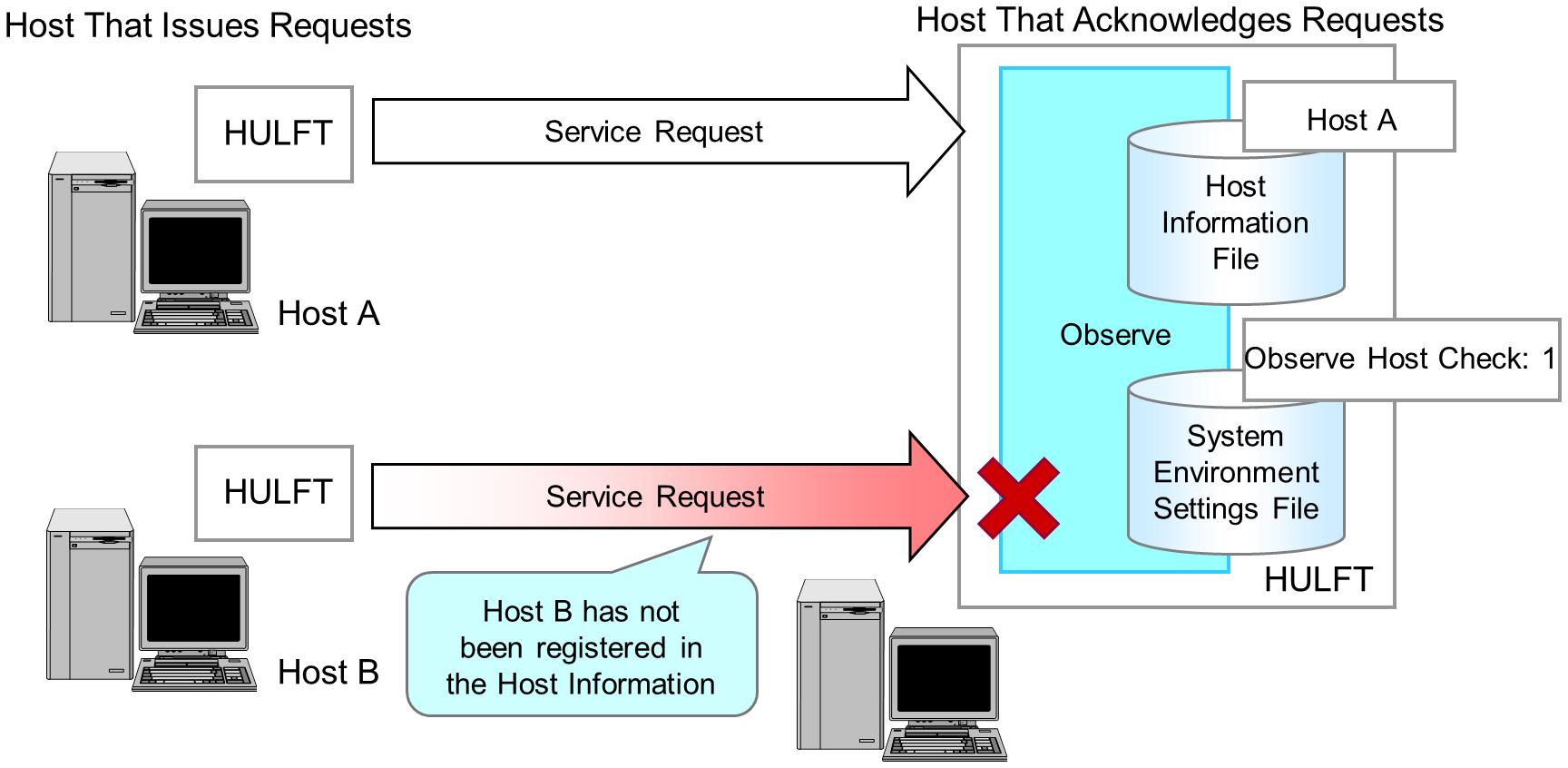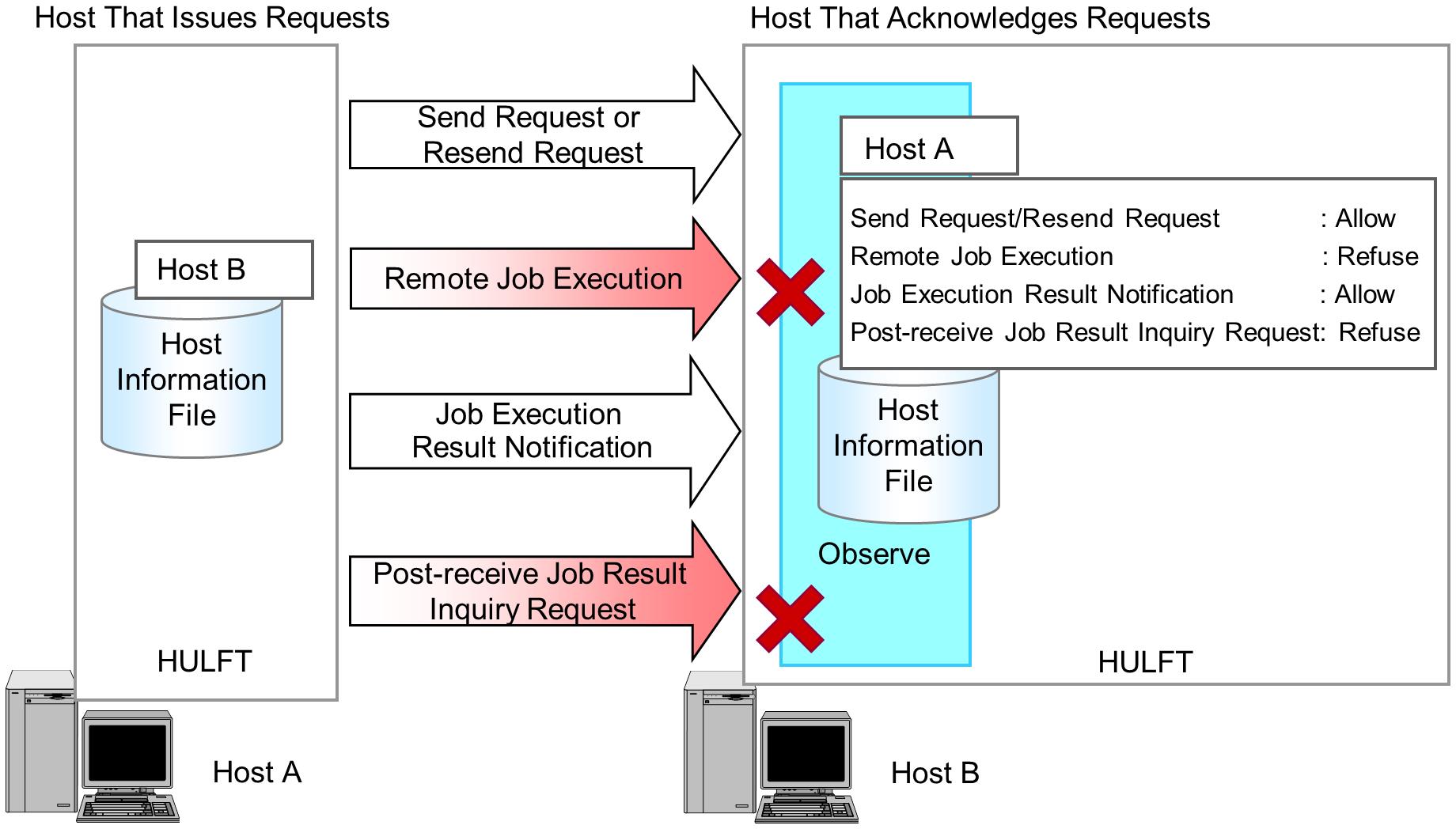Security support functions
|
|
(1) Output of operation logs
The operation log now becomes available to keep the records that indicate what having been done by whom when updating system files or executing commands. You can have the system output the target records by specifying conditions such as names of user, types of operation, and date of processing concerning the operation logs that are kept.
When suspicious log records of sending or receiving are found, or an improper value is set to management information, you can identify unlawful computer access or mistakes in settings and the like by examining the corresponding operation logs.
In addition, you can have HULFT notify the User ID on operating system and the ID of the Management Console Security to the host at the connection destination when issuing requests or executing commands. The notified User ID is kept in the operation log.
You can select whether to notify the user ID or not on a host basis, depending upon operational environment.

Figure 1.2 Output of operation logs
Regarding the starting user and the starting host in sending and receiving, information on the requestor host is taken over.
(2) Data Verification function
You can verify the consistency between the data received by the host on the receiving side and those transferred by the host on the sending side. This is called the data verification function.
With the data verification function, the host on the receiving side can detect errors occurred in the middle of transferring for some reason or other.
To use the data verification function, the hosts on both sending side and receiving side must install HULFT Ver.7 or higher.

Figure 1.3 Data Verification function
(3) Observe Host Check function applied when a service request is accepted
When the Observe system acknowledges the requests of services, the function to check whether the requests are issued by registered hosts or not is now available.
This allows users to refuse the connection from unintended host. With the requestor host check function, you can refuse the unintended requests from the hosts installed HULFT lower than Ver.7 as well as the undesired connection among the hosts installed HULFT Ver.7.

Figure 1.4 Observe Host Check function applied when a service request is accepted
(4) Observe screening by service request type
In acknowledgement of service requests by the Observe system, the function to set whether to grant acknowledgement according to service types issued by the host registered in the Host Information of HULFT is now available.
With the observe setting function according to service types, you can refuse the disallowed service requests from the hosts installed HULFT lower than Ver.7 as well as the connection among the hosts installed HULFT Ver.7 or higher.

Figure 1.5 Observe screening by service request type